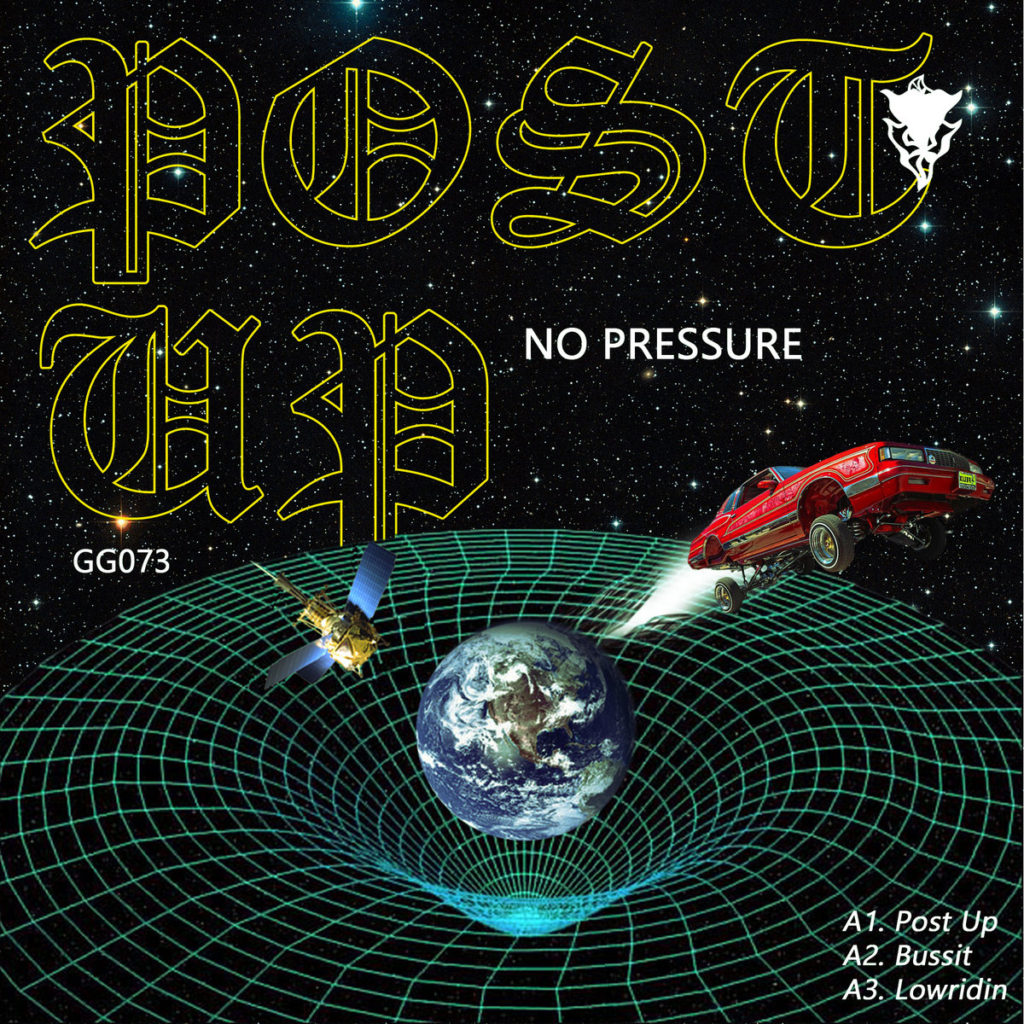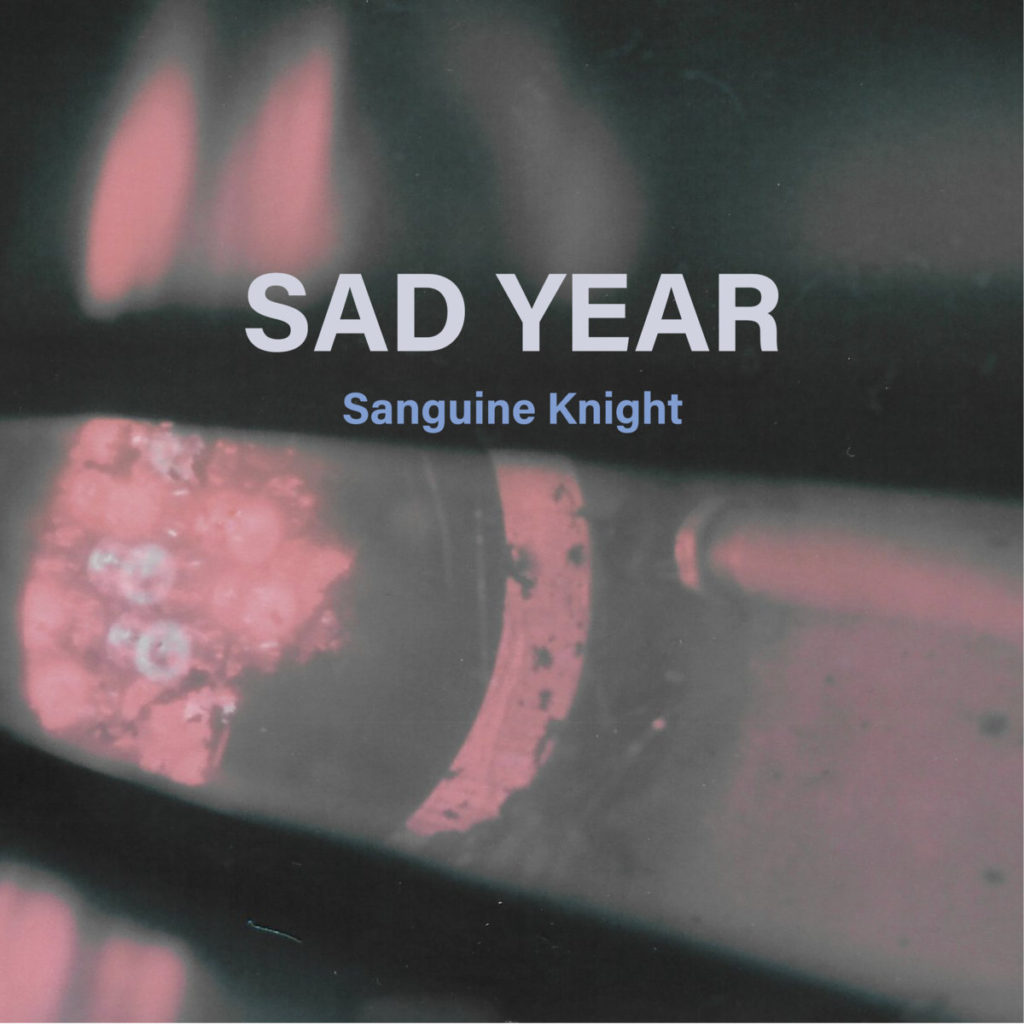FORTHE’s Bandcamp Picks: August 2021
14 minute readFORTHE’s Bandcamp Picks is a regular series highlighting brand new music releases from Long Beach musicians, producers, and bands. This month marks the return of Bandcamp Friday, which began last spring as part of Bandcamp’s monthly initiative to direct more proceeds to artists in light of the pandemic by waiving its usual 15% service fee for all music purchased that day. That means that today, artists will get to keep all proceeds from music sales, minus a small PayPal or card processing fee. It will continue every first Friday for the rest of 2021.
Below, our members Esther Kang, Erin Foley, Santiago Charboneau, and Kevin Flores picked their favorite local releases from May through Aug. 6 in no particular order. By purchasing from their Bandcamp pages, you can support these local artists directly.
Artist Shelley Bruce – “Light Study #27”

“Heavy is the head that wears the crown / Navigates seas others would never dare venture upon.” Artist Shelley Bruce’s textured alto voice sits gently on a meditative swell of synths that rumble in and out like the ocean tide. A spoken word piece dedicated to “all Black women, and simply all people, who have learned to navigate the heaviness of this journey with an unmatched Grace,” according to Bruce’s artist statement, “Light Study #27” steadies the listener’s mind with ease and primes it for even just a momentary return to a higher self. This track is part of a larger collection that will be released in the future. -EK
Pageants –

Sun and Settled Days by Long Beach bedroom rockers Pageants infuses the playful spirit of dream pop with the melancholic melodies of shoegaze, then adds a generous helping of Rebecca Coleman’s own sunbleached vocals and songwriting. The result is an album destined to be spun whilst rollerskating at the beach, with no particular destination in mind. Devin O’ Brien’s active and punchy bass guitar provides an excellent source of forward momentum within these 11 songs, emphasizing the crispy guitar leads nicely. “All Bets Aside” is a song pondering the inevitability of change during an unpredictable time, as Coleman muses: “A new divine, will it all subside? / The beginning of the summertime / A linking light, I could socialize / From a distance I could turn the tide.” Despite a good portion of the album having been written while socially distant, Pageants emphatically defies the spirit of staying inside and steadfastly encourages the listener to embark on an introverted journey outdoors. Just don’t be surprised if you end up at the beach. -SC
bobby blunders feat. Tiffany Davy – “Until It’s Over”

A polyrhythmic dance song about steadfastness through struggle, the insistent pulse of Bobby Blunders’ “Until It’s Over” persuades the listener to keep moving forward despite, to quote the band’s Bandcamp page, the “seemingly endless news cycle” that bombards our senses daily with “trauma and turmoil.”
Songwriter Jesse Carzello says, “I don’t want to say it’s [just] about social media, what I’m talking about is exacerbated by the current way that we consume media [in general].” He references the ubiquitous ticker at the bottom of the news screen with sensationalized headline after headline constantly scrolling by and how nowadays “people are used to it, but [he] remember[s] how jarring it was when that first started.” How do we hang on to hope personally and as a society while being exposed perpetually to an onslaught of pain and anguish? How do we deal with collective grief? Though the song was originally penned a few years prior to the pandemic or the video of George Floyd’s chilling murder went viral, the themes are still evergreen.
Bobby Blunders began as a side project for Carzello while he was the guitarist for the late Ikey Owens’ band Free Moral Agents. With the collective efforts of himself and bandmates Michael J. Salter (guitar, bass, keys, production) and Pastor “AJ” Freeman (vocals) as well as featured lead vocalist Tiffany Davy, their sound pulls from a wide range of 20th century influences to create what they have dubbed “cosmic comfort music.” Carzello is quick to dispel any thought to take their self-described genre too seriously, saying, “[it] was come up with somewhat in jest…because, you know, in terms of talking to other people about your music, or trying to get get people in media to care about your music, they need to be able to, one, describe it, two, know where it fits in the market, [so] it’s subverting that sort of capitalist expectation. I’m not being purposely obscure or difficult or anything like that. I actually want to make music that is somewhat accessible—that’s kind of where the ‘comfort’ comes from. But then also ‘cosmic’ because I want it to be expansive.”
Carzello was inspired by a variety of pan-African sounds but says the song “traveled quite a distance” once he brought it to the rest of the group. In addition to upgrading the drum production, Salter greatly helped the evolution of the sound by adding chords on the keys that fit nicely under Davy’s melody, while backing vocalist Freeman helped amplify the emotional power and depth brought by her vocal styling. As someone who intends to make “functional ecstatic music” (to paraphrase Carzello, it is basically gospel music secular folks can get down to) he is perpetually seeking inspiration “until it’s over.” Carzello says of the vocalists, “when they really get going, I just feel like it has that thing that makes you want to keep pushing.”
“Until It’s Over” was first released this year in honor of Juneteenth with proceeds received on the holiday going to Black Women for Wellness LA. Stay tuned for new music coming soon. -EF
No Pressure – Post Up

In his sophomore three-track EP Post Up, GRN+GLD veteran No Pressure (formerly known as Chip Monk) brings his signature blend of experimental tech house that is as infectious as it is mind-bendingly playful. The title track “Post Up” anchors itself in a bouncy bass synth arp and choppy vocal samples that rev up the track’s engine in a slow build. The following track “Bussit” engages in No Pressure’s trademark orchestra of dissonance while the seductive sample repeating “Buss it / Buss it / Buss it / Let me buss it” sets it apart as a dance-floor anthem guarantee. The final track “Lowridin” is a four-on-the-floor jet ride that dissolves into a delicious acid bender. -EK
Jagged Jein – Typical Honey

Jagged Jein’s eight-track debut LP is dripping with ‘90s alt-rock and grunge grit and has shades of PJ Harvey, Hole, and The Cranberries. But Typical Honey also roams into free-form jazz territory in “Scorpion” and departures into prog-rock, like the dramatic swells in “Culdesac Child,” which ends in a cacophonous parade of cymbal crashes. There is so much to compliment about this album, from the guitarwork—no matter how many times the guitar solo is pronounced dead, albums like Typical Honey prove its timelessness—to the piercing lyrics. But the first time listening through this release, it was frontwoman Kadie DiCarlo’s voice that most captivated me. At times angelic, other times cuttingly vulnerable with moments of sneering exasperation, DiCarlo’s vocal acrobatics are reminiscent of Regina Spektor—with phrasing that ranges from atonal to poppy. -KF
Sanguine Knight – Sad Year

The last year, and the four prior years, have left many people depleted of optimism, questioning whether hope truly springs eternal. This pent-up grief is the central theme of Long Beach fixture Sanguine Knight’s newest release Sad Year. Its walls of shoegazy sound hit you like pulsing, unprocessed emotions and the reverb-bathed vocals plunge you into themes of existential anxiety, depression, alienation, and romantic loss. Reflecting the intrusive thoughts of bedroom-bound despondency are lyrics like “Will I ever live to see the rising sun” and “I know that life goes fast and soon we will all die.” Alina Kano and Michael Williams share the mic on this release, which make for beautiful harmonies on some tracks, especially on “Blind,” what is a bittersweet bookend to a relationship by a forlorn lover. -KF


 editors@forthe.org
editors@forthe.org




